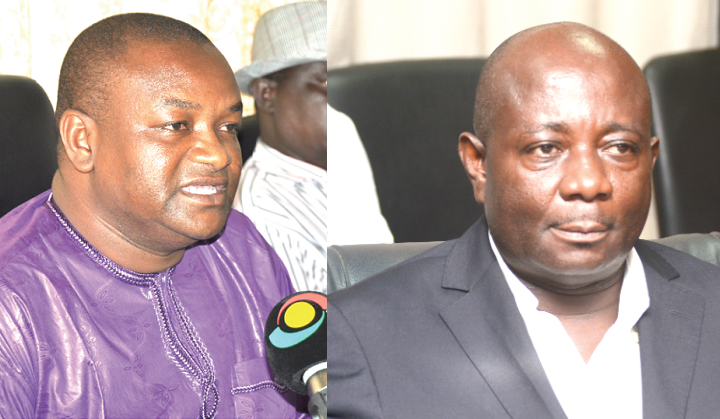
Expectations high as parties share views on 2018 budget
Expectations are high as the country awaits the presentation of the budget statement for 2018 by the Finance Minister, Mr Ken Ofori-Atta, on the floor of Parliament today.
Advertisement
Ahead of that, politicians, research teams and civil society organisations (CSOs) have shared their expectations and recommendations for the country’s economic growth.
Speaking to the Daily Graphic about the expectations of Ghanaians and the political parties of the 2018 budget, Mr Murtala Mohammed, the National Secretary of the Progressive People’s Party (PPP), said the government had been successful so far in its handling of the macro-economy and so what was expected in the budget was how that could be translated to the micro level for people to feel the impact in their pockets
He said the PPP expected to see how the 2018 budget was going to address revenue challenges confronting the state, considering the campaign promises made by the NPP, such as the free senior high school education; the one-district, one-factory policy and the election of metropolitan, municipal and district chief executives (MMDCEs).
“The party also expects the government to tackle the major issue of youth unemployment in the budget, which all Ghanaians agree is causing security problems for the country,” he added.
Election of MMDCES
On the election of MMDCEs, Mr Mohammed said the PPP placed much emphasis on it as one of the party’s priority areas and would like to see how the government was going to fund the elections, which were going to enhance good governance.
United Progressive Party
The Founder and Leader of the United Progressive Party (UPP), Mr Akwasi Addai Odike, said his expectation and that of his party were for the budget to focus on agriculture by investing 40 per cent of the country’s Gross Domestic Product in the sector.
In addition, the budget could add value to agricultural produce by encouraging agro-processing which could create job avenues for the teeming unemployed youth of the country, he said.
Interest rate
He said he expected banks to reduce their interest rates, which was currently 22 per cent, to 18 or 17 per cent to increase borrowing from the private sector to expand businesses and thereby create jobs for ordinary Ghanaians to alleviate their suffering.
Technology transfer
Mr Odike said the rate at which the country imported inferior finished goods was impoverishing everybody and so he expected the budget to address the importation of goods by putting emphasis on technology transfer, so that the country could also manufacture its basic goods.
He noted that surpluses could be exported to earn more foreign exchange, not to talk about the jobs that could be created as a result of manufacturing.
APC on budget
The Leader of the All People’s Congress (APC), Mr Hassan Ayariga, said his expectation and that of his party were high because they expected to see how the budget could capture the 2016 campaign rhetoric of the government, since there was a vast difference between campaigning and reality.
He explained that the government was voted into power to create jobs, but since it came to power, no substantial jobs had been created for the youth.
Industries
The APC also expected the budget to address the promise the government gave to create more industries in the country, he said, explaining that the creation of industries would have to be based on strong agricultural production to produce raw materials to feed the industries
He said he also expected the budget to look at education and start tackling the challenges to be faced by products of the free SHS who would want to continue their education at the university level.
GN Research Team
Analysts with GN Research emphasised the importance of a clear update on progress made so far with some of the government’s flagship policy initiatives, including the free SHS and the one-district, one-factory programmes.
They recommended that the government “introduce policies to widen the tax base by roping in the informal sector into the tax net and also introduce measures aimed at generating more domestic revenue for its operations”.
In a statement, the GN Research team expressed the hope that the 2018 budget would consolidate the gains and propel rapid economic growth.
It also identified the need for the government to strengthen and unify its policies to foster growth and development in the country.
According to the team, although the economy could be said to have “attained some stability in 2017” owing to the policies introduced in the 2017 budget, it still remained relatively “fragile and requires a lot more effort to yield better results in the coming year”.



